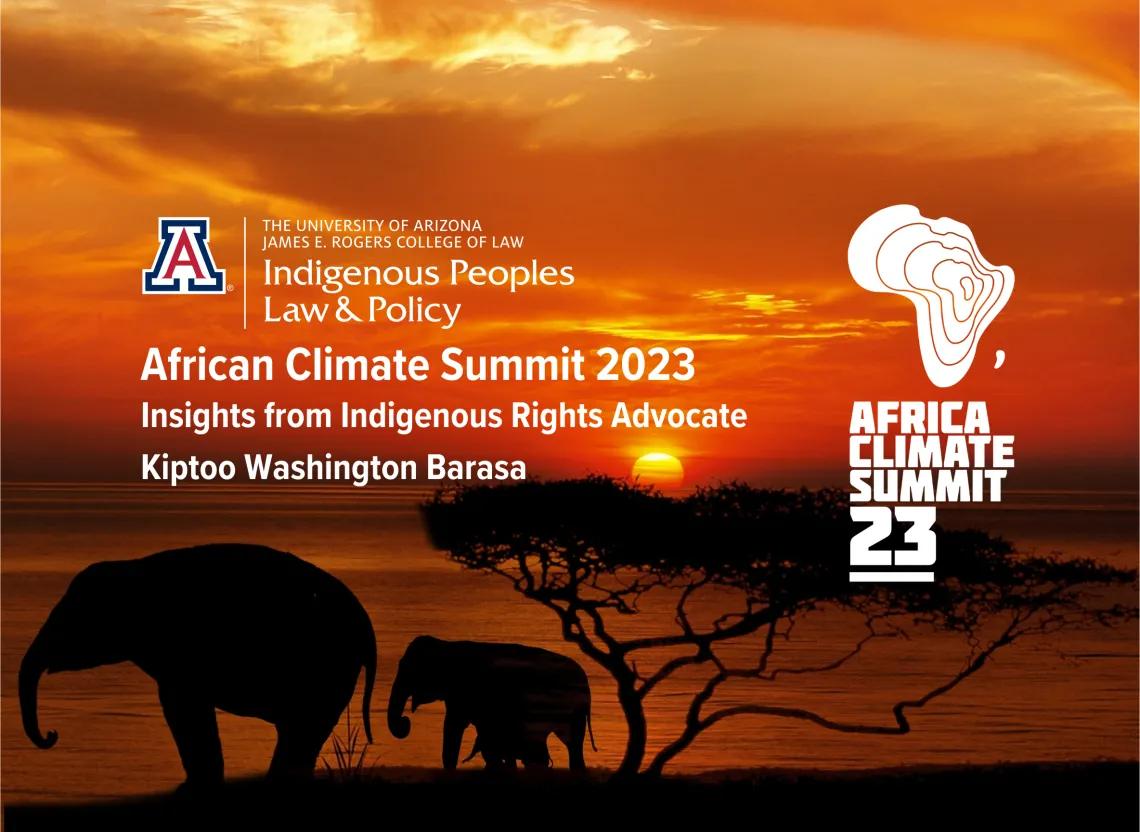Highlights of African Climate Summit – Nairobi September 4-6, 2023


Kiptoo Washington Barasa, IPLP Bay and Paul Foundations Fellow
Earlier this month, Kiptoo Washington Barasa, a Research Fellow and SJD Candidate for the Indigenous Peoples Law and Policy Program, attended the African Climate Summit 2023 in Nairobi, Kenya. In his notes for the IPLP Indigenous Rights and Protected Areas team, Kiptoo stated that a key outcome of the summit was the signing of the Nairobi Declaration by over twenty Heads of State and Governments. This declaration is of great importance to international conversations around decarbonisation and climate justice as it forms the negotiating agenda for the African region, going into the United Nations Climate Change Conference 2023 (COP28) in Dubai next month.
The Nairobi Declaration will be submitted to the United Nations General Assembly at COP 28, advocating for a global and carbon taxation regime on fossil fuel trade, maritime transport, and aviation. It is worth noting that at the time of the summit, Kenya passed the Climate Change (Amendment) Bill to regulate carbon markets, demonstrating the political urgency of these conversations within regional policymaking. At the summit, it was pointed out that only 12 per cent of global climate action financing is directed towards African economies, highlighting significant discrepancies in aid provision against the severe impacts of climate change, neo-colonialism, and ecological/resource exploitation on the continent. The declaration, therefore, calls for OECD countries to honour commitments of approximately $100 billion annually to support African countries in mitigating and preparing for the worst consequences of climate change.
The other African requests and commitments included debt restructuring and relief, commitment to making policy that attracts investment in green growth, strengthening actions to halt and reverse biodiversity loss and deforestation, restoring degraded lands, expansion of just energy transition, and restorative agricultural practices. A total of USD $23 billion was committed by governments, development banks, philanthropists, and private investments over the next three years towards various climate initiatives. The need to embed youth in climate change decision-making was reiterated. Finally, it was affirmed that no country should need to choose between development aspirations and climate action and that both can be achieved through a serious global commitment to decarbonisation and economic restructuring.

